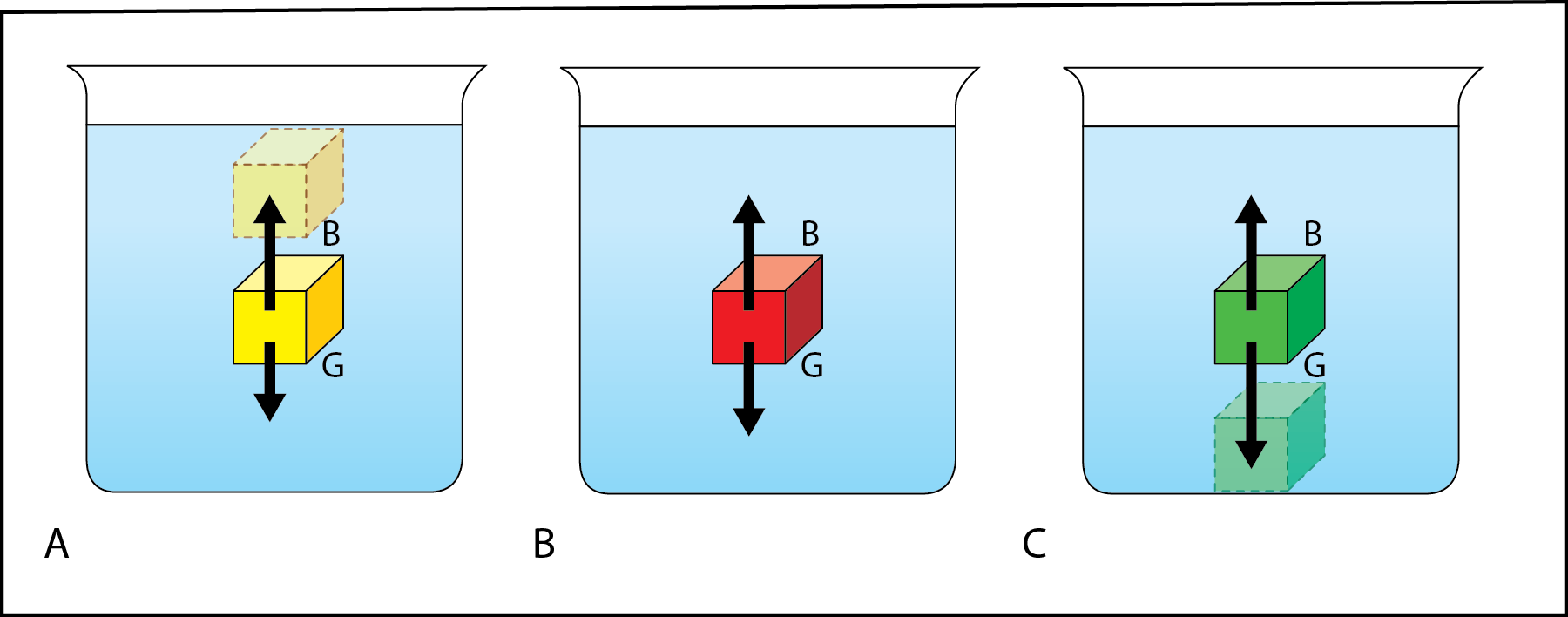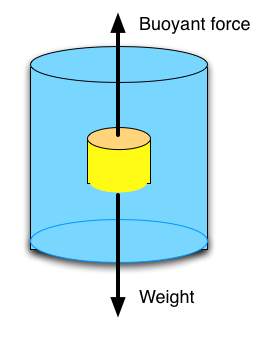Quick explanation. An object will stay afloat as long as it weighs less than or equal to its displaced fluid weight in water?
I understand buoyancy maybe 85%. I just to understand the answer to this question to piece everything together because it's been really bothering me. Thank you.
I understand buoyancy maybe 85%. I just to understand the answer to this question to piece everything together because it's been really bothering me. Thank you.
1 Answer
Something along those lines, yes.
Explanation:
The thing to remember about buoyancy is that it's always competing with the weight of the object dropped in the water, meaning that it opposes the force of gravity that's pushing the object towards the bottom.
In this regard, the weight of the object is pushing down on the object and the weight of the displaced water, i.e. the buoyant force, is pushing up on the object.
This means that as long as the force that's pushing up is greater than the force that's pushing down, your object will float on the surface of the liquid.
When the two forces are equal, the object will hover within the liquid, not going up towards the surface and not going down towards the bottom.
When the force that's pushing down is greater than the force that's pushing down, the object will sink.

Now simply replace the force that's pushing down with the weight of the object and the force that's pushing up with the weight of the displaced water and you've got Archimedes' Principle.
Mind you, drag, which also plays a role in balancing out the two forces, and surface tension are usually omitted from the discussion.


